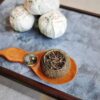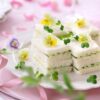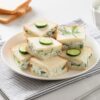
Lovers of tea understand the magic of a perfectly steeped cup, but what if you’re looking for a more relaxed experience without the jolt of caffeine? Enter decaffeinated black tea, the choice for those seeking a mellow and soothing sip. In this article, we’ll dive into the world of decaffeinated black tea and explore its flavors, benefits, and brewing techniques.
Decaffeinated black tea undergoes a process that removes most of the caffeine content, preserving the distinct taste and aroma that black tea enthusiasts crave. Whether it’s an early morning ritual or an afternoon pick-me-up, decaffeinated black tea offers a delightful way to unwind and savor the rich flavors without the stimulating effects of caffeine that can disrupt sleep or trigger jitters.
Join us as we delve into the intriguing world of decaffeinated black tea. Discover different varieties, learn about the decaffeination process, uncover the health benefits, and find tips on brewing the perfect cup. So sit back, relax, and embrace the serene charm of decaffeinated black tea.
What is decaffeinated black tea?
Decaffeinated black tea is a variation of traditional black tea that has undergone a process to remove most of its caffeine content. While black tea is known for its robust flavor and energizing properties, decaffeinated black tea provides an alternative for those looking to enjoy the taste without the stimulating effects of caffeine.
The decaffeination process works by extracting the caffeine from the tea leaves while preserving the other compounds responsible for its unique taste and aroma. This allows tea enthusiasts to savor the rich flavors and experience the calming effects that black tea offers, making it a popular choice for those who want to enjoy a cup of tea in the evening or before bed.
Decaffeinated black tea is available in various forms, including loose leaf tea, tea bags, and ready-to-drink bottled options. With its wide availability and growing popularity, it’s easier than ever to find decaffeinated black tea that suits your taste preferences and brewing style.
The benefits of drinking decaffeinated black tea
Decaffeinated black tea offers a range of benefits that make it a favorable choice for tea lovers. Here are some of the key advantages:
- Caffeine-free enjoyment: By opting for decaffeinated black tea, you can enjoy the rich flavors and soothing qualities of black tea without the stimulating effects of caffeine. This allows you to unwind and savor a cup of tea at any time of the day, including in the evening or before bed, without worrying about the potential sleep disturbances associated with caffeine consumption.
- Relaxation and stress relief: Black tea, even when decaffeinated, contains compounds such as L-theanine that are known to promote relaxation and reduce stress. The calming qualities of decaffeinated black tea make it an excellent choice for those seeking a moment of tranquility amidst a busy day.
- Antioxidant properties: Like its caffeinated counterpart, decaffeinated black tea is rich in antioxidants, which have been linked to various health benefits. Antioxidants help protect the body from damage caused by harmful free radicals, potentially reducing the risk of chronic diseases and supporting overall well-being.
- Hydration: Contrary to common misconceptions, decaffeinated black tea can contribute to your daily hydration needs. While it may not have the same diuretic effects as caffeinated beverages, such as coffee, it still provides a refreshing and hydrating option to enjoy throughout the day.
Overall, decaffeinated black tea offers a delightful and health-conscious alternative for tea enthusiasts who want to unwind and savor the flavors without the stimulating effects of caffeine.
How is decaffeinated black tea made?
The decaffeination process involves removing the majority of caffeine from the tea leaves while retaining the taste and aroma that make black tea so beloved. There are several methods used to decaffeinate black tea, each with its own advantages and considerations:
- Direct solvent method: This method involves using chemical solvents, such as ethyl acetate or methylene chloride, to extract the caffeine from the tea leaves. The solvent is applied to the tea leaves, which selectively binds to the caffeine molecules. The leaves are then washed to remove the solvent, leaving behind decaffeinated tea leaves. While this method is efficient, it may raise concerns for those who prefer more natural and chemical-free processes.
- Indirect solvent method: In this method, the tea leaves are steamed to open their pores, and then they are rinsed with a chemical solvent, usually ethyl acetate or carbon dioxide. The solvent extracts the caffeine from the leaves, and then the leaves are rinsed again to remove any residual solvent. This method is considered a gentler approach compared to the direct solvent method, as the solvent is not in direct contact with the tea leaves for an extended period.
- Carbon dioxide (CO2) method: This method uses pressurized carbon dioxide to extract the caffeine from the tea leaves. The tea leaves are moistened and exposed to pressurized CO2, which acts as a solvent to selectively remove the caffeine. The CO2 is then depressurized, allowing the caffeine to separate from the CO2 gas. This method is often considered more environmentally friendly as it doesn’t involve the use of chemical solvents.
- Water processing method: In this method, the tea leaves are soaked in water to extract the caffeine. The water is then filtered through activated carbon, which selectively captures the caffeine molecules. The resulting caffeine-free water is reintroduced to the tea leaves, allowing them to reabsorb the flavors and compounds lost during the initial extraction. This process is considered the most natural and chemical-free method of decaffeination.
Each decaffeination method has its own pros and cons, and the choice of method may vary depending on factors such as desired taste, environmental considerations, and personal preferences. Regardless of the method used, the goal is to retain the essence of black tea while minimizing the caffeine content, allowing tea lovers to enjoy a cup of decaffeinated black tea with all its flavors and benefits.
Types of decaffeinated black tea
Decaffeinated black tea comes in various forms, each offering a unique flavor profile and brewing experience. Here are some popular types of decaffeinated black tea:
- Decaffeinated Assam: Assam tea is known for its malty flavor and robust body, making it a favorite among black tea enthusiasts. Decaffeinated Assam offers the same distinctive characteristics without the caffeine content, making it an excellent choice for those who enjoy a strong and full-bodied cup of tea.
- Decaffeinated Earl Grey: Earl Grey is a classic black tea infused with the essence of bergamot, a citrus fruit. Decaffeinated Earl Grey retains the delightful blend of black tea and bergamot, allowing you to savor the fragrant and refreshing flavors without the caffeine.
- Decaffeinated Darjeeling: Darjeeling tea is often referred to as the “champagne of teas” due to its delicate and complex flavor profile. Decaffeinated Darjeeling captures the essence of this prized tea, allowing you to experience its floral and muscatel notes without the stimulating effects of caffeine.
- Decaffeinated English Breakfast: English Breakfast tea is a classic blend known for its robust flavor and invigorating qualities. Decaffeinated English Breakfast offers the same rich taste and comforting aroma, making it a perfect choice for a relaxing morning or afternoon tea break.
These are just a few examples of the wide variety of decaffeinated black teas available. Whether you prefer a bold and robust flavor or a more delicate and nuanced taste, there is a decaffeinated black tea to suit every preference.
Choosing the best decaffeinated black tea for your taste
When selecting a decaffeinated black tea, it’s important to consider your personal taste preferences and the characteristics of the tea. Here are a few factors to keep in mind:
- Flavor profile: Consider the flavor profile you enjoy in black tea. Do you prefer a strong and robust taste, or do you prefer a more delicate and nuanced flavor? Read the descriptions of different decaffeinated black teas to get an idea of their flavor profiles and choose one that aligns with your preferences.
- Origin: Different regions produce black tea with distinct characteristics. Some popular black tea origins include Assam (India), Darjeeling (India), Ceylon (Sri Lanka), and Yunnan (China). Research the flavor profiles of black teas from different origins to find one that appeals to you.
- Quality and freshness: Look for reputable tea brands or specialty tea shops that offer high-quality decaffeinated black tea. Freshness is important for getting the best flavors, so opt for teas that have been recently harvested and stored properly.
- Packaging: Consider whether you prefer loose leaf tea or tea bags. Loose leaf tea generally offers a more flavorful and customizable brewing experience, while tea bags provide convenience and ease of use.
By considering these factors, you can choose a decaffeinated black tea that suits your taste preferences and ensures a delightful tea-drinking experience.
Brewing and serving decaffeinated black tea
Brewing decaffeinated black tea requires a similar approach to brewing regular black tea. Here are some tips to help you brew the perfect cup:
- Water temperature: Heat fresh, filtered water to around 200°F (93°C). This temperature is suitable for most decaffeinated black teas and allows for optimal extraction of flavors without scorching the tea leaves.
- Tea-to-water ratio: Use approximately 1 teaspoon (2 grams) of loose leaf tea or 1 tea bag per 8 ounces (240 ml) of water. Adjust the amount of tea according to your desired strength.
- Steeping time: Steep the tea for 3-5 minutes, or as directed on the packaging. Avoid oversteeping, as this can result in a bitter taste.
- Teaware: Choose teaware that allows the tea leaves to unfurl and infuse fully. This can include teapots, tea infusers, or even a simple mug with a strainer. Avoid using metal containers, as they can interfere with the taste.
- Serving: Once the tea is steeped to your desired strength, pour it into a teacup or mug. You can enjoy it plain or add a splash of milk, a squeeze of lemon, or a touch of honey to enhance the flavors.
Remember, brewing decaffeinated black tea is a personal experience, and you can adjust the brewing parameters to suit your taste. Experiment with different brewing times, water temperatures, and tea-to-water ratios to find the perfect balance for your preferred cup of decaffeinated black tea.
Health benefits of decaffeinated black tea
Decaffeinated black tea offers numerous health benefits that make it a valuable addition to a balanced lifestyle. Here are some potential advantages:
- Antioxidant power: Like regular black tea, decaffeinated black tea contains antioxidants, such as catechins and theaflavins, which have been linked to various health benefits. These antioxidants help combat free radicals in the body, potentially reducing the risk of chronic diseases and supporting overall well-being.
- Heart health: Studies have suggested that regular consumption of black tea, including decaffeinated varieties, may help promote heart health. The antioxidants found in black tea can help reduce cholesterol levels, improve blood vessel function, and lower blood pressure, all of which contribute to a healthy cardiovascular system.
- Digestive benefits: Black tea, even when decaffeinated, contains compounds that can aid digestion. It has been found to have anti-inflammatory properties that may help soothe the digestive system and alleviate gastrointestinal discomfort.
- Mental well-being: The L-theanine content in decaffeinated black tea is known to promote relaxation and improve mental focus. It can help reduce stress, enhance mood, and provide a sense of calm without the stimulating effects of caffeine.
- Hydration: While decaffeinated black tea may not have the same diuretic effects as caffeinated beverages, it still contributes to your daily hydration needs. Staying hydrated is essential for overall health and well-being.
It’s important to note that while decaffeinated black tea offers potential health benefits, it should not be considered a cure for any specific condition. As with any dietary or lifestyle change, it’s always best to consult with a healthcare professional for personalized advice.
Decaffeinated black tea vs. regular black tea
Decaffeinated black tea and regular black tea have some similarities but also key differences. Here’s a comparison of the two:
- Caffeine content: The most significant difference between decaffeinated black tea and regular black tea is the caffeine content. Decaffeinated black tea has had the majority of its caffeine removed, usually retaining less than 5% of the original caffeine content. Regular black tea, on the other hand, contains varying levels of caffeine depending on the specific tea and brewing parameters.
- Flavor profile: Both decaffeinated and regular black teas offer a wide range of flavors, but some tea enthusiasts argue that decaffeinated black tea may have a slightly milder taste compared to its caffeinated counterpart. However, this can vary depending on the specific tea and the decaffeination method used.
- Stimulating effects: Regular black tea provides a natural energy boost due to its caffeine content. It can help improve focus, increase alertness, and provide a gentle pick-me-up. Decaffeinated black tea, as the name suggests, does not have the stimulating effects of caffeine, allowing you to enjoy its flavors and benefits without the potential side effects associated with caffeine consumption.
- Occasions for consumption: Regular black tea is often enjoyed in the morning or throughout the day for its energizing properties. Decaffeinated black tea, on the other hand, is a popular choice for those looking to relax, unwind, or enjoy a cup of tea in the evening without the risk of caffeine-induced sleep disturbances.
Ultimately, the choice between decaffeinated black tea and regular black tea comes down to personal preference and the specific circumstances in which you wish to enjoy your cup of tea.
Decaffeinated black tea offers a delightful way to enjoy the soothing flavors of black tea without the caffeine. With its various varieties, decaffeinated black tea caters to different taste preferences, ensuring there is a perfect cup for everyone. Whether you choose Earl Grey, English Breakfast, or Darjeeling, each sip allows you to unwind, relax, and embrace the serene charm of decaffeinated black tea. So take a moment for yourself, brew a cup, and let the flavors transport you to a state of tranquility.






